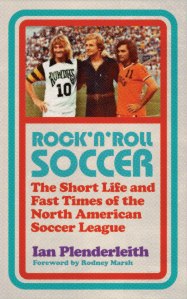Waking Up: A Guide to Spirituality without Religion
Sam Harris
My anticipation for the new Sam Harris book turned to anxiety when I learned it would be about spirituality. Was the firebrand philosopher and scientist—co-founder of Project Reason and author of The End of Faith and Letter to a Christian Nation—changing teams?
philosopher and scientist—co-founder of Project Reason and author of The End of Faith and Letter to a Christian Nation—changing teams?
Nah.
Perhaps a better title for this book, though, would be The Atheist’s Guide to Meditation.
At its core, Waking Up is about mindfulness, and as a fellow atheist who has attended a fair share of Buddhist retreats (including a recent one on Mindfulness-Based Stress Reduction), I can relate to some of the conflicts Harris encounters. No matter how secular the retreat, I get nervous when I find myself in a room full of people following the direction of a group leader offering spiritual betterment.
Harris takes out the touchy-feely and goes straight for the scientific foundation of a mindfulness-based approach to life. The result is a book heavy on Buddhist philosophy and refreshingly light on bullshit.
What makes Waking Up different is that it’s also what Harris calls a “seeker’s memoir.” We follow his journey from a skeptical teen to an adult struggling with the feelings of “unsatisfactoriness”—which is his interpretation of the concept of dukkha, rather than the traditional definition of suffering.
He had my attention early in the book, when describing the disquiet of his solitary thoughts and the relief he felt when experimenting with MDMA, LSD and DMT: “It would not be too strong to say that I felt sane for the first time in my life.”
Through his seeking, Harris reveals that, for him, spirituality is not the existence of a higher being in the ethereal realm, but rather the cognizance one has of an immaterial self. “Subjectively speaking, the only thing that actually exists is consciousness and its contents. And the only thing relevant to the question of personal identity is psychological continuity from one moment to the next.”
Speaking of continuity, Harris gets a little far afield the deeper we delve into the book. Beyond memoir, he explores the scientific underpinnings of consciousness and meditation, drops some knowledge about psychedelic drugs and, justifiably, rants on the silliness (and scientific dishonesty) of Proof of Heaven and other accounts of near-death experiences.
While I really enjoyed many of these sections, they didn’t have the cohesion of a linear narrative. It read more like a collection of essays on a single topic—which is fine, just not what I was expecting.
Harris’ informed and enlightened discussion of psychedelics resonates the most with me. Not only do I agree with his observations (and share some of his experiences), but Harris also challenges some of my long-held assumptions.
For instance, Aldous Huxley’s Doors of Perception is a seminal bit of psychedelic literature, and for years I bought in fully to Huxley’s description of the brain as a “reducing valve.” Harris debunks this by drawing on modern neuroscience, causing me to think about mind-manifesting drugs in a new way.
All told, Waking Up is an interesting and enjoyable read. There’s a bit of science writing, philosophy, memoir and a unique take on spirituality and meditation.





